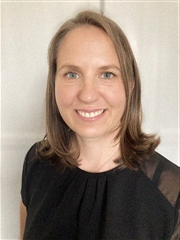Tutor HuntResources Maths Resources
Gcse Exam Technique
My tips for practising exam technique
Date : 29/08/2020
Author Information

Uploaded by : Catherine
Uploaded on : 29/08/2020
Subject : Maths
GCSE exam technique There are many aspects to revision, not least revisiting all the topics in the syllabus. A very important part of revision for exams is to practice exam technique. Under time pressure, it s easy to panic, it s easy to run out of time and it s easy to make silly mistakes. By practicing exam technique you can be more prepared for these problems and have tricks and routines ready to use to enable you to do your best at showing what you know. Depending on the style of exam, successful techinques can differ slightly here I talk about GCSE maths in particular. Mindset The questions in the GCSE papers won t be very predictable so being prepared with the right mindset will help prevent panic. Be prepared for a challenge and to think carefully about each question. The method needed might not be immediately obvious so you need to stay calm and remain confident that you do know the answer, it just needs some thinking first. Tackling a question These are my tips to tackle an exam question: First of all read the question carefully, don t just assume you know what it is about. Have a think about what topic the question on and what maths tools you have that you can use. Identify, and perhaps underline, the information that has been provided it might be a length, or it might be a word like equilateral. Next identify what you need to work out. After this is where some thinking comes in. It s easy to panic at this point but stay calm and have a think. What type of maths is needed? Does it combine 2 or more parts of the syllabus? What methods might work? Once you have a plan, have a go at the maths, taking care that each step is written carefully and logically. Marks are often available for each step of the calculation, and if you have been asked to show your method, you will only be awarded marks if you do. The number of marks available will give you an indication of how many steps there will be to your calculations. Once you have completed your calculations, read the question again to see if you have answered the question. You will often find there is one more step to be done. Lastly have a think to see if your answer makes sense. Is it about what you would have expected. If it doesn t look right go back and check your workings. Timing Keep a close eye on the time to ensure that you progress through the paper quickly enough to get to the end. The maths GCSE papers are 90 minutes long, with 80 marks (or 100 marks for OCR). This equates to just over a minute per mark (or just under for OCR). This is a good guide but it can be a bit stressful thinking I must complete this 4 minute question in 4 minutes! As you will find some questions easier than others, I would recommend aiming to have completed 40 marks worth of questions in the first 45 minutes. I would even go as far as counting through and noting on your paper where 40 marks is before you start. By practicing full papers at home, you get a feel for the pace that is needed to try all the questions. What to do if you get stuck If you do get stuck on a question, or you are worried it will take so long to work out that you will waste time, I would recommend writing down the first couple of steps if you can to try to gain some method marks. And then come back to it later. Missing out a whole question loses you a lot of marks so it is better to have a go than leave it blank. Mark and mark schemes Understanding how marks are awarded and how much work is need to get each mark can help you know what the examiners are looking for and become more efficient at collecting marks. This is an advantage of using actual past papers during revision as you can then mark your efforts yourself using the mark scheme. By working through a few mark schemes yourself you get a feel of how marks are awarded. Practice papers To practice all these tips, you can find many actual past papers and mark schemes, along with example exam questions on the internet. It is a good idea to practice lots and lots of these, working on each part of exam technique.
This resource was uploaded by: Catherine
